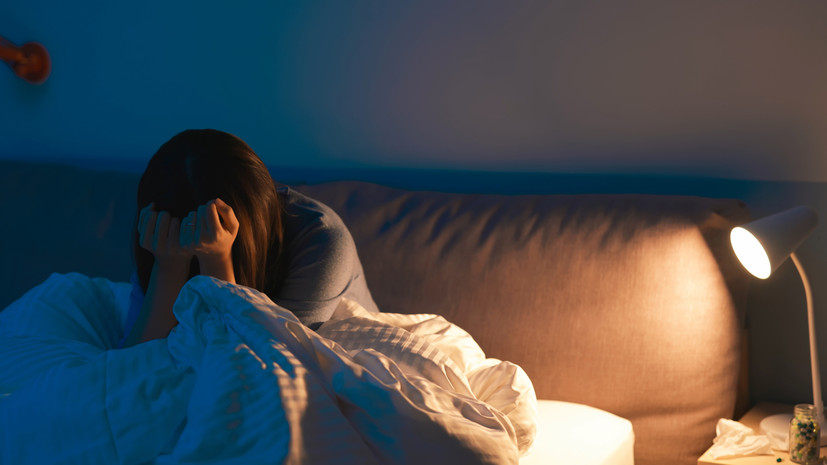- Sofia Anatolyevna, recently in Moscow and other cities of Russia there were severe frosts, and now there is a thaw. Can such weather fluctuations affect the quality of sleep?
- Yes, there are weather-sensitive people who react to changes in humidity levels, atmospheric pressure, and they can experience a variety of symptoms.
Someone's sleep deteriorates, someone's blood pressure changes, someone just feels worse during this period.
-
It turns out that there may be a lack of sleep.
What are its health implications?
Sleep deprivation has both immediate and long-term consequences.
Each of us felt immediate when we did not get at least one night's sleep.
This is irritability, depression, decreased intellectual performance.
Some people may get a headache.
Another thing is when lack of sleep lasts for months and years.
Then the risk of depression, professional burnout increases, and after years and decades - cardiovascular diseases, atherosclerosis, hypertension, coronary heart disease, diabetes mellitus, dementia.
Does lack of sleep affect everyone equally?
- Someone reacts very calmly to the fact that they do not get enough sleep: for example, they live in a shift schedule for years - and their health withstands.
And some people get in trouble pretty quickly.
The first physical problems with lack of sleep, as a rule, are associated with a decrease in immunity, that is, it is an increased predisposition to colds, viral, bacterial, pustular skin diseases, and after that other problems begin.
People with pre-existing any chronic diseases on the background of lack of sleep are more likely to experience an exacerbation.
-
Can long-term sleep problems affect weight gain?
Yes, there is a direct relationship here.
Lack of sleep is stress, it is an increased production of cortisol and other anxiety hormones.
They increase the absorption of glucose into cells and the expenditure of energy, and due to the rapid drop in blood glucose levels, the phenomenon of hunger occurs.
In addition, a person who lacks sleep is unlikely to go on a treadmill - he would prefer to ground himself on the couch in order to somehow endure until lights out.
Does napping help correct the effects of lack of sleep? How much sleep can you get during the day?
- Daytime sleep partially helps to correct the effects of lack of sleep.
In fact, daytime sleep adds some resource: the body gets the opportunity to do night work, to make recovery efforts so that a person feels better.
As for the amount of daytime sleep, a person who, in principle, gets enough sleep at night, but likes to sleep during the day, 15-20 minutes is enough.
If a person does not get enough sleep, then a lot depends on how strong the sleep deficit is.
If, for example, he sleeps five hours, and his norm is eight, then an hour of daytime sleep would be useful for him.
An important point: it is still better not to sleep late during the day.
It is advisable to wake up no later than 14-15 hours, so as not to get insomnia, difficulty falling asleep in the evening.
How do
influenza and coronavirus affect sleep?
What sleep-related symptoms may occur if the patient has recently had these illnesses?
- A lot of research has been done on the effect of coronavirus infection on sleep, and scientists have come to the conclusion that 20% of people who have had coronavirus develop acute or chronic insomnia.
Acute - up to three months, chronic - over.
So there are certain risks.
But usually, when a person recovers, returns to an active lifestyle, stops adhering to bed rest, drinks liters of tea that contains caffeine, begins to follow the rules of sleep hygiene, as a rule, the process of falling asleep returns to normal.
-
If there is constant noise outside the window, how can you improve the process of falling asleep?
What will help
?
- Someone turns on the sounds of nature or music without words before going to bed: some kind of noise, not significant informationally, which "blocks" the sounds of the city.
There are also white noise generators - they reproduce a specific sound similar to the hiss of a tube TV or radio between stations.
It has the physical property of absorbing other sounds that are less clearly heard against its background.
In addition, white noise itself is reflexively lulling, so it can help you fall asleep.
Also, many just use earplugs.
If a person is comfortable sleeping in them or in a mask, then please.
The main thing is that these are high-quality earplugs.
Also, remember not to use disposable earplugs as reusable ones because they can become a source of ear infections.

